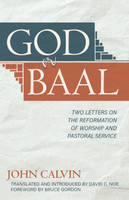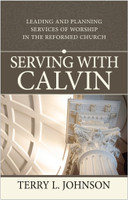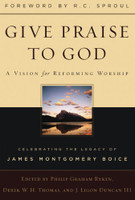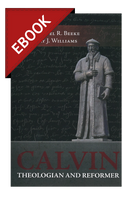
EBOOK God or Baal: Two Letters on the Reformation of Worship and Pastoral Service (Calvin)
- Affordable shipping (free $100+)
- 100,000+ customers served
- "Wonderful books, great prices, awesome customer service." – Ivan, IL
Description
This book consists of two open letters by the young John Calvin to evangelical believers who desired to stay and work within the Roman Catholic Church.
The first letter exposes the idolatry involved in the Mass, while the second denounces the papal abuses of the pastoral office of the church. Together, they form a resounding call for the necessity of a thoroughgoing Reformation.
This translation from David C. Noe makes the two letters available together for the first time in English. Noe also provides a helpful introduction to Calvin’s early life and the problem of evangelical believers remaining in the Roman Catholic Church.
This book does not merely provide a helpful view of how Calvin believed the moderate French reform movement should decide between God and the worship of false prophets. It is also an opportunity for us to reflect on the abiding significance of the need for reformation.
Contents
Foreword - Bruce Gordon
The First Letter: We Must Flee the Forbidden Rites of the Wicked, and Maintain the Purity of the Christian Faith
The Second Letter: The Christian Man’s Obligation Either to Fulfill or Renounce the Priestly Offices of the Papal Church
Endorsements
“For too long a picture of the young Calvin’s theology has been only partially available in English, with the result that key moments in the development of his reforming vision have been obscured. David Noe’s crisp and complete translation of Calvin’s first publication after his arrival in Geneva makes the full scope of Calvin’s early reforming priorities accessible and so illuminates for English readers the emergence of central themes in Calvin’s religious thought between the writing of the first (1536) and second (1539) editions of the Institutes.
“In this treatise, consisting of two open letters published in March 1537, Calvin for the first time openly criticizes the moderate French evangelical reform movement of which he had recently been a part. He intensifies concerns with idolatry, more aggressively attacks the Mass, and distinguishes the respective duties of laity and those holding church office to conform outer behavior to their Reformed religious convictions when living as religious minorities. Read together, these two letters stand as Calvin’s earliest public declaration of an emerging sense of his professional obligations as an office holder in a Reformed church shaped by the radical evangelicalism of his recent but from this point on abiding associates, Guillaume Farel and Pierre Viret.
“This translation will serve, among other things, as an excellent classroom resource for unpacking the emergence of the distinctively Calvinist concern with the ethics of religious dissimulation and the potentially polluting effects of ceremonies judged to be illicit—matters that reflect the growing centrality of the glory of God and an increasing fascination with the complexities of human nature in both his theology and his work as church Reformer.”
—Barbara Pitkin, senior lecturer in religious studies, Stanford University
“John Calvin’s Two Letters (1537), written against his one-time friends Nicholas Duchemin and Gérard Roussel, is one of his earliest and most devastating attacks against Catholic idolatry and religious dissimulation. Published for the first time in English, David Noe’s superb translation of this neglected work captures the urgency of the young Calvin’s theological concern and the intensity of his uncompromising rhetoric. It also sheds light on a central aspect of the Reformer’s spirituality, that true piety begets true confession.”
—Scott Manetsch, chair of church history and the history of Christian thought, Trinity Evangelical Divinity School
“Brought together here for the first time in English are two of the most important public letters by the young John Calvin. Not yet the titan of the Reformation he would one day become—indeed, not yet truly famous but already here significant. These letters brim with passion; here we see the young John Calvin still finding his voice. But with a voice in tones both passionate and reflective, Calvin emerges from these pages as an acute reader of people and their plights. First published together in 1537 and meant to be paired, this fresh and vibrant translation finally brings them together for readers in English and adds depth and dimension to a man too often caricatured.”
—David M. Whitford, professor of Reformation studies, Baylor University
“Two of the most significant texts penned by the young John Calvin are now available in English, thanks to this wonderful and meticulously annotated translation by David Noe. These two letters, written with a wide audience in mind, lay out Calvin’s understanding of the essence of genuine Christian worship and his adamant opposition to compromise and dissembling. As the detailed introduction and foreword make eminently clear, these texts are indispensable for anyone who wants to understand how Calvin’s theological consistency made it possible for Reformed churches to flourish and succeed in the face of persecution.”
—Carlos M. Eire, T. Lawrason Riggs Professor of History and Professor of Religious Studies, Yale University
About the Editor
David C. Noe is professor of classics at Calvin University in Grand Rapids, Michigan, and a pastor in the Orthodox Presbyterian Church. His work can be found at latinperdiem.com.
About the Author
John Calvin (1509–1564) was a pastor in Geneva, Switzerland, and a prominent preacher and theologian during the Protestant Reformation.





